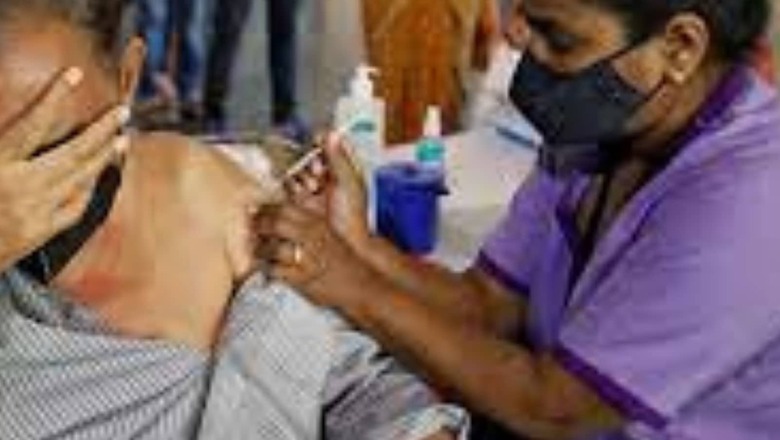
views
With the noise around booster shots against Covid-19 and their need growing worldwide and many countries, including the US and UK, beginning administering the ‘extra’ doses, India has maintained a stoic ‘no’ on the issue. Recently, Dr VK Paul, NITI Aayog member and the government’s chief Covid-19 advisor, reiterated the Centre’s strategy, or lack thereof, and said that India currently has no plans to give booster doses as some nations have begun doing.
More than 15 countries worldwide have begun issuing third doses of coronavirus vaccines to older citizens, including in Israel and in European Union nations such as France, Italy and Germany.
“As of now we do not have a recommendation for a booster bump-up dose,” Dr Paul told reporters during a recent health ministry briefing, adding however that the government would “continue to watch this space very carefully”.
India is the world’s largest vaccine producer but the country halted exports of Covid jabs earlier this year to focus on its domestic needs after a devastating infections surge overwhelmed hospitals.
But with vaccination rates now high and coronavirus cases down sharply, exports have resumed in recent days, with a total of around four million doses reportedly being sent to Nepal, Bangladesh, Myanmar and Iran.
Booster shots and their need
Vaccines are strongly effective against hospitalisation and death from Covid-19, even after the Delta variant took over, but countries are on guard against waning protection against less severe infection and for high-risk populations. Studies show an extra dose of the original formulas revs up virus-fighting antibodies that fend off infection, including antibodies that target delta.
Tweaking the recipe
The Pfizer and Moderna vaccines are made with a piece of genetic code called messenger RNA that tells the body to make harmless copies of the spike protein so it’s trained to recognize the virus. Updating the formula merely requires swapping out the original genetic code with mRNA for a mutated spike protein.
Both companies first experimented with tweaked doses against a mutant that emerged in South Africa, the beta variant, which has been the most vaccine-resistant to date, more so than the delta variant. Lab tests showed the updated shots produced potent antibodies. But the beta variant didn’t spread widely.
Now, the companies have studies underway of fully vaccinated people who agreed to test a booster dose tweaked to match delta. Modernas studies also include some shots that combine protection against more than one version of the coronavirus — much like todays flu vaccines work against multiple influenza strains.
The mRNA vaccines are considered the easiest kind to tweak but some other vaccine makers also are exploring how to change their recipes if necessary.
Mix and match
The US Food and Drug Administration (FDA) is reportedly preparing to allow “mix and match” coronavirus vaccine boosting, in which people get a different additional shot to the dose they initially received.
A preliminary study released in the United States last week showed that people who have received the J&J vaccine may benefit from a booster dose of a different, messenger-RNA vaccine such as Pfizer or Moderna.
But multiple reports quoted people familiar with the discussions as saying one shot may not be recommended over another, and the FDA could say using the same vaccine is preferable when possible.
In July the World Health Organization’s chief scientist Soumya Swaminathan said mixing and matching vaccines was “a bit of a data-free, evidence-free zone.”
What the WHO says
The World Health Organization’s vaccine advisers recommended last week that people with weakened immune systems should be offered an additional dose of all WHO-approved Covid-19 vaccines.
But the WHO wants a moratorium on booster doses for the general population until the end of the year to prioritize first doses in the dozens of nations starved of vaccines.
(With agencies)
Read all the Latest News , Breaking News and IPL 2022 Live Updates here.














Comments
0 comment